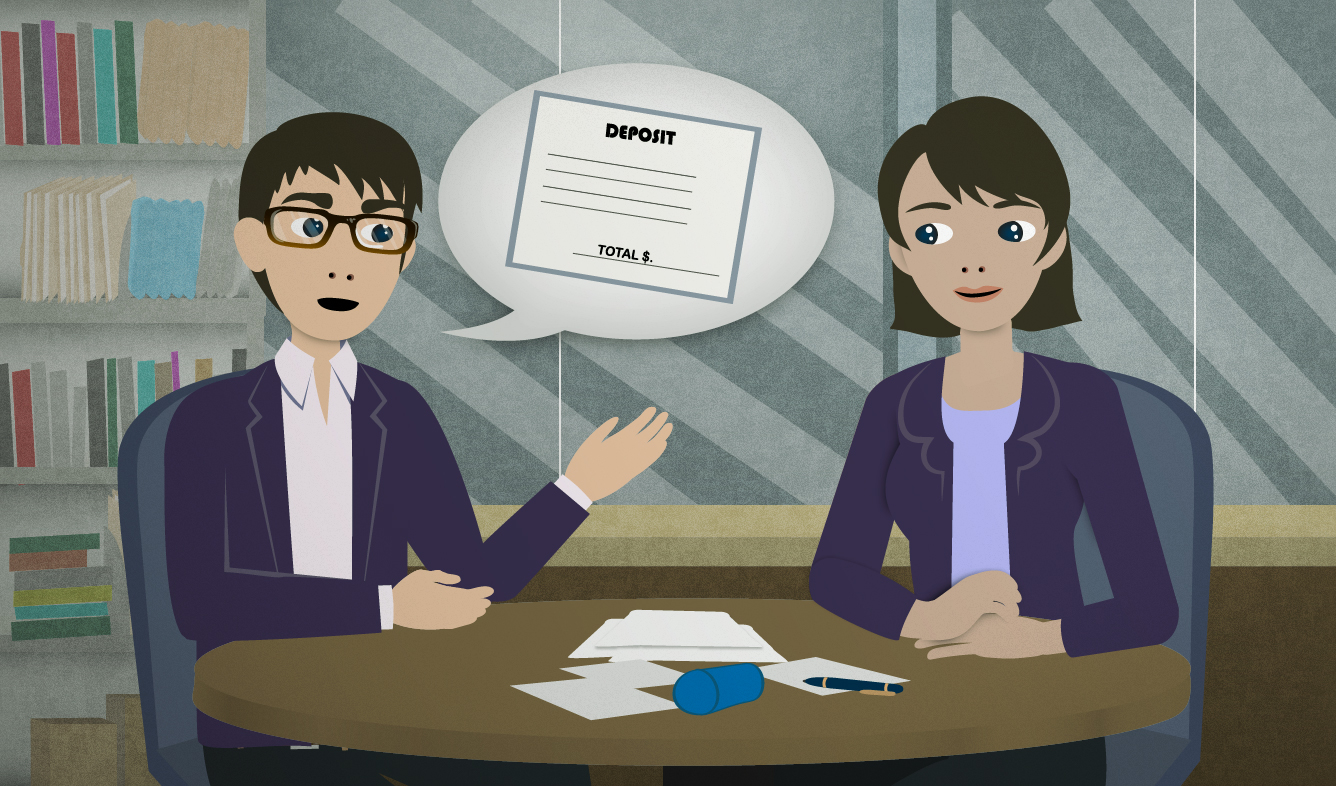“Hey, can we go back to what you were saying about the deposit slips? I have a question.”
You just got a job as a bank teller. You're being trained. A few minutes ago, the trainer talked about deposit slips. Now she's moved to a different topic, but you have another question about deposits. You ask to return to that topic.
Hey, can we go back to what you were saying about the deposit slips? I have a question.
Want Video and Sound? Follow us on YouTube

a deposit slip
A "slip" is like a form, but it's usually smaller than a full sheet of paper. Some examples of "slips" are:
- permissions slips (for school field trips, etc.)
- deposit slips
- wire transfer slips
- a pink slip (which is a piece of paper telling someone that they've been fired or laid off)
"Deposit slips" are pieces of paper that you have to fill out when you're depositing money into a bank account. You write your name, the amount of money you're depositing, your account number, and so on.
Hey
You say "Hey" at the beginning of a sentence in casual English when you want to get someone's attention. For example:
Hey, Hitomi, can you hand me that box over there?
It's common to say "Hey" before you ask someone a question, or when someone has done something that's wrong or unfair:
Use "hey" with people you know or are familiar with. When you're talking to people you don't know as well, "Excuse me" is more polite.
go back to (something)
In a conversation or a discussion, talking about a topic that you talked about before is called "going back to ___". For example, imagine a conversation between you and a friend:
- You talk about your job.
- Then you ask your friend about his children.
- Then your friend asks more questions about your job.
In this case, your friend might say:
Hey, I wanted to go back to your job. What were you saying about your boss?
If you're describing this conversation to someone else, you might say:
I asked him about his kids, but thene we went back to my job. So I told him...
A similar phrase is "come back to ___". Use this when you're having a conversation and you know that you might want to discuss a topic again later:
Let's move on, but we can come back to this later if anyone has any questions.
I have a question.
Say this to get someone's attention before you ask a question.
Dr. Mariel, I have a question. What do you mean when you say "economic liberalism"?
This phrase is common in somewhat formal situations like classrooms, meetings, lectures, and so on.
